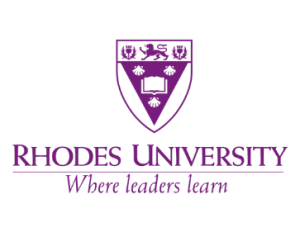27 January 2024
[MAKHANDA] Universities should play a significant and meaningful role in community efforts to transform the cities in which they are located. That’s according to Rhodes University Vice-Chancellor, Professor Sizwe Mabizela. He was speaking on the first day of the Makhanda Education Summit, in the Eastern Cape, on Saturday, 27 January.
In 2013, Makhanda (then known as Grahamstown) was the 10th worst-performing education district in the country. Recognising this as the crisis it was, the university immediately partnered with various stakeholders, introducing a range of interventions at primary and high schools in the city.
Some of the strongest indicators of the performance transformation following this collaboration, led by Prof Mabizela, include:
- The literacy comprehension rates of the city’s Grade 4 pupils are more than double those of South Africa as a whole, as measured by the 2021 PIRLS study. As of 2023, 40% of Grade 4 children in Makhanda could read for meaning, compared with 19%nationally.
- The improving literacy rates have seen the city’s drop-out rate of pupils plummet by 20 percentage points over the past three years.
- The Matric pass rate in Makhanda has jumped from around 60% ten years ago to 80% today.
- Record numbers of pupils are securing Bachelor passes, and the quality of these Bachelors are rising, resulting in a tenfold increase in the number of disadvantaged local youth gaining access to Rhodes University as full-time students.
- There is a sharp upturn in the number of locals successfully graduating from Rhodes University.
- The Vice-Chancellor’s Initiative (VCI)’s Nine-Tenths mentoring Programme won the MacJannet Prize for Global Citizenship. The prize recognises exemplary university student civic engagement programs around the world. Rhodes University is the only University on the African continent to have won this accolade.
Note – a full chronology is attached.
Over the past decade, Makhanda has risen from being almost anonymous in its educational outputs to being the leading educational city in the Eastern Cape. This has been possible with a wide-ranging collective effort involving numerous public, civil society and private institutions as well as donors.
“As the proverb goes, it is better to light a candle than to curse the darkness”, said Professor Mabizela. “Lighting a candle forces us to focus on the sphere in which our influence lies. Through a strategic and focused plan, we have illuminated every corner of the city, fostering a globally engaged, locally responsive approach to education. Makhanda has set a template for the entire educational landscape of South Africa.”
He added: “We firmly believe that the milestones we have managed to achieve through strategic interventions and partnerships, should ignite a nationwide conversation on how universities can play a pivotal role in democratising access to quality education. This is a clarion call for reflection and inspiration, for other institutions to begin to actively engage their communities and to shape a future where universities are not just located in a city but form an integral part of the community within that city. Our hope is that our journey will inspire a national movement where universities, stakeholders, and communities rally together for the collective upliftment of education.”
The conference continues tomorrow. – ENDS-
View Education Chronology Timeline Infographic_final
For media queries, contact Christelle du Toit, Interim Manager: Communications and Marketing at 072-122-0066 / christelle.dutoit@ru.ac.za

